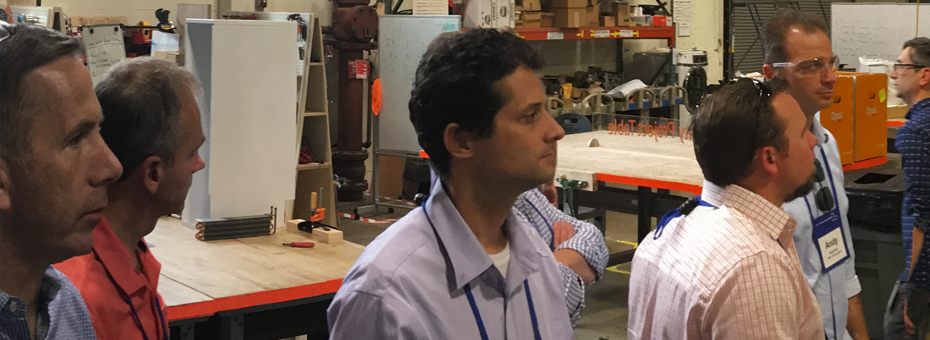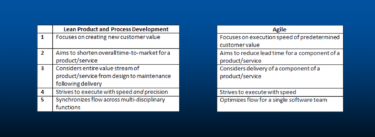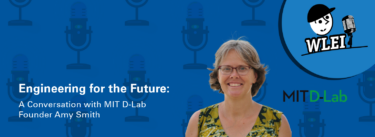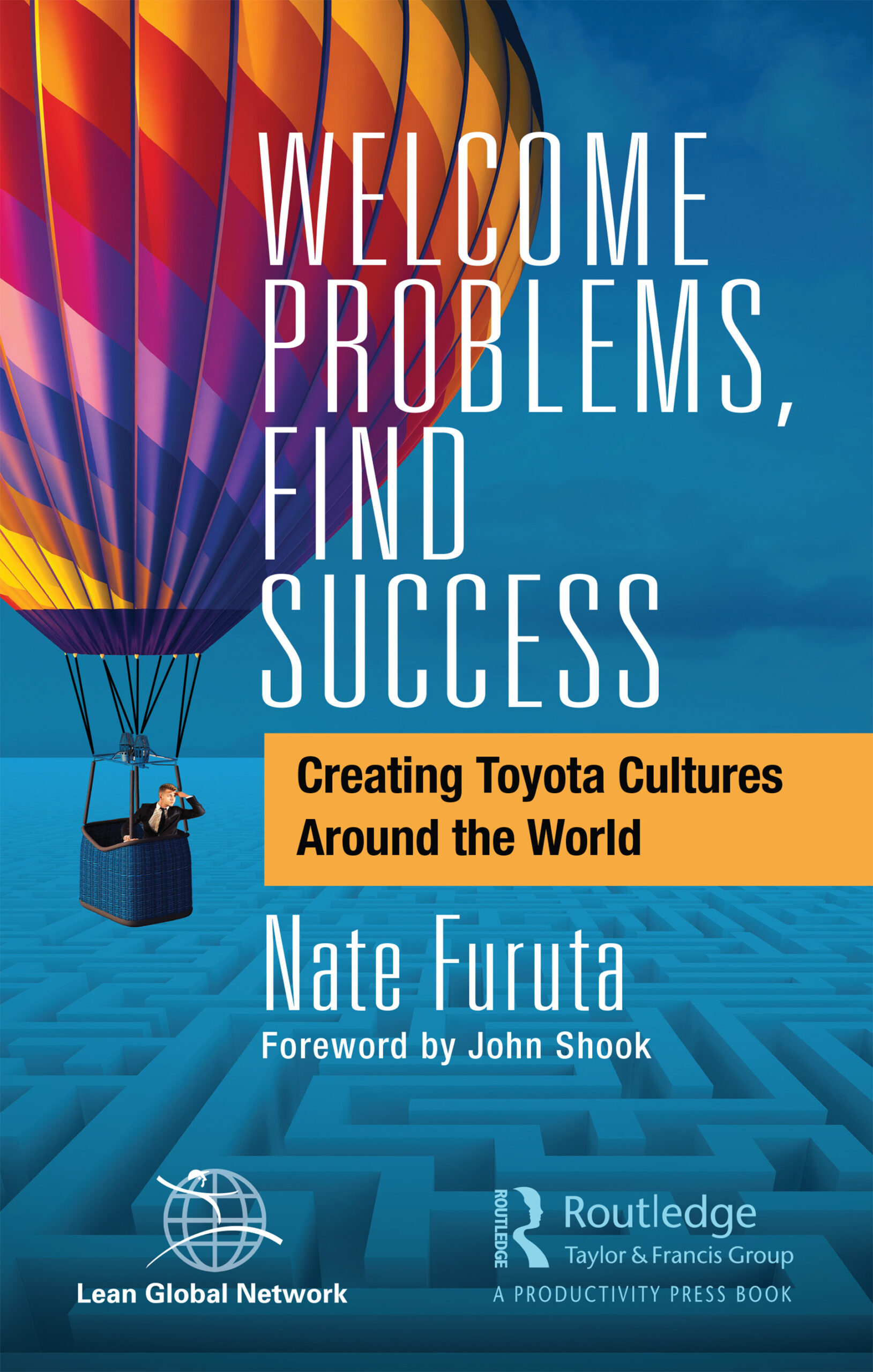One of the most important and difficult tasks that an organization can take on is improving its product and process development system. Although they may recognize that this will provide significant opportunities, companies often struggle even to find out where to start. That is why we launched the LPPD Learning Partner initiative. One of the unique aspects of this partnership is an unparalleled opportunity to share experiences with other high performing, non-competing organizations.
Our latest learning event was held at GE Appliance Park in Louisville, Kentucky. Thirty-five people from five companies came together to share LPPD experiments from the past six months.
“The LPPD partnership provides a unique opportunity to gain insights and learning’s on product Development,” said Kevin Nolan, Vice President of Technology and Development at GE Appliances. “It is an area that is critical to the success of a company but until the LPPD partnership, it was an area that was very hard to go and see and learn from world-class companies. The recent event that we hosted in Louisville provided many great insights to all the companies but more importantly showed us clear areas where we can improve.”
LPPD Senior Advisor Jim Morgan kicked off the event by reminding participants that this event was an important part of the overall LPPD learning cycle. He also shared some ways participants could work with their coaches to apply these lessons to their work back home.
Next, leaders from each company shared their work and current challenges in applying set-based concurrent engineering to their development process. After some very interesting cross-company discussion led by LPPD Senior Coach John Drogosz, Professor Durward Sobek of Montana State University led the group through a hands-on tradeoff curve exercise. It was great to see the teams break out their calculators and work their way through the problems
After reviewing some dramatic improvements to GE’s appliance assembly line that were enabled through their lean product and process development work, the group journeyed over to First Build. First Build is a pathbreaking center that embodies a key principle of LPPD: do the experiment and understand your customer. There, careful customer research and product development come together to produce the latest consumer appliances. Participants were fascinated to learn that First Build allows anyone from the community to just walk in, look at the displayed products and leave their feedback.
The second day started with an overview of craftsmanship. Jim Morgan described it to the team as “the visual, tactile and audible characteristics of a product that drive your customers perception of quality. Excellence in craftsmanship enhances the total customer experience and creates unique value. You can recognize craftsmanship in products and services by their simple elegance and seamless fit. They embody the elimination of the superfluous and the precise execution of the essential. Something about the product says ‘well made’ and actually draws you to it.”
Herman Miller’s John Miller then took the group through the work his company has been doing building craftsmanship into their development process and the impact of their award-winning designs. GE Appliances shared their work to date and took the group through their craftsmanship lab – it was an eye opener for the whole group. Andy Houk of FMC Technologies, the newest LPPD Learning Partner, took the stage afterwards and described his company’s mission, challenges and goals for their transformation.
Eric Ethington, LPPD Partner Program Manager wrapped up the event with a reflection exercise to capture important lessons and identify opportunities to improve the next event. There was much positive feedback from participants, particularly regarding the gemba visits.
“The workshop tours were really great,” said Bob Mullet of Bose. “They just make everything real. It’s one thing to read about it or know it exists, but to see it yourself is really inspirational. It’s that moment when you think, ‘Wow. Why aren’t we doing that?’”
“As I look back on the event I’m amazed at the volume of information exchanged, both formally and informally,” said Houk. “If you don’t get out and see what others are doing, physically being there, you are just stewing in your own bathwater. Getting together with people from respected companies that are having similar struggles as you and sharing ideas accelerates learning.”
For more information on the LPPD Learning Group, contact Eric Ethington, LPPD Senior Coach and Project Manager, at eethington@leanpd.org.





